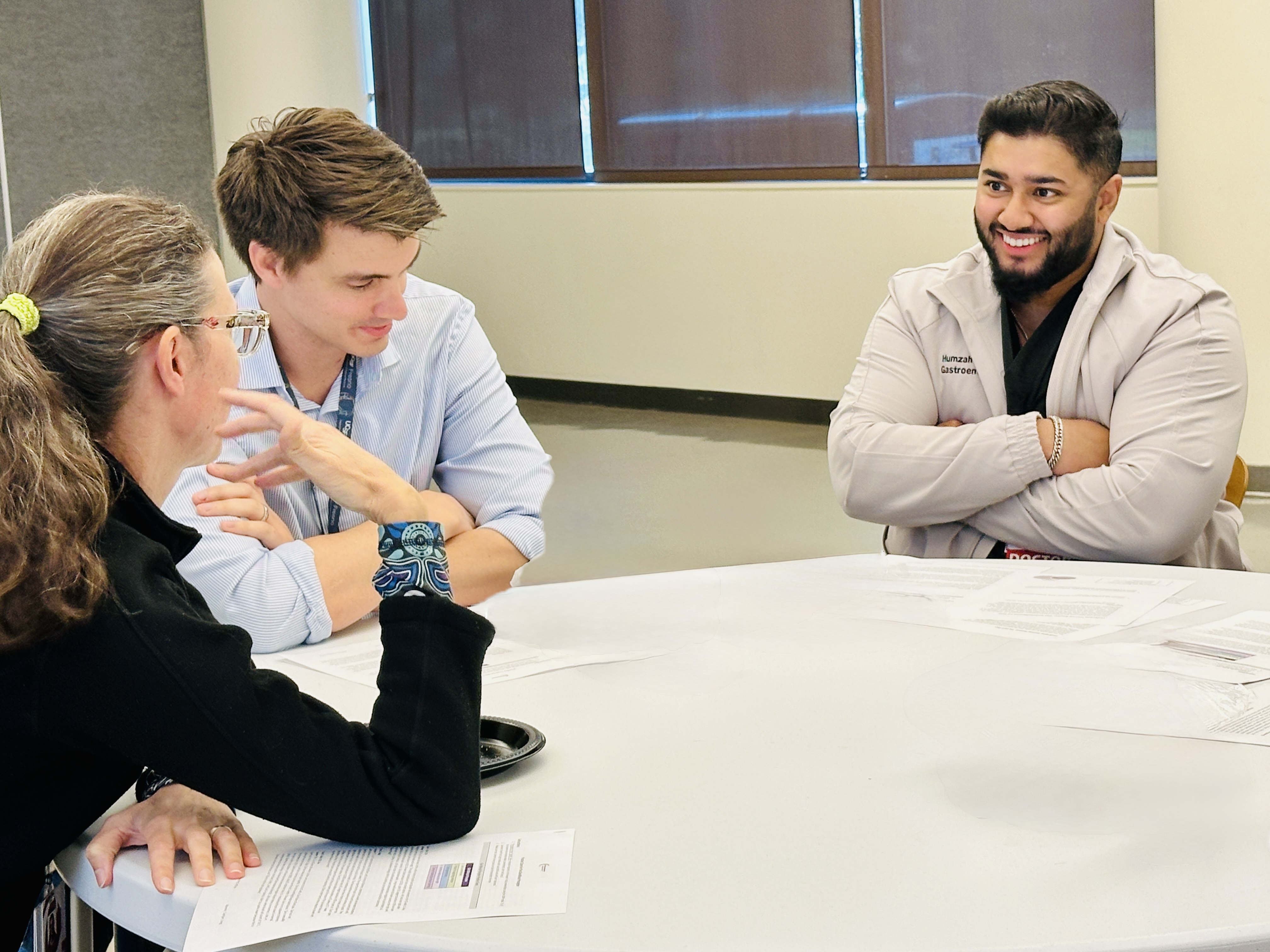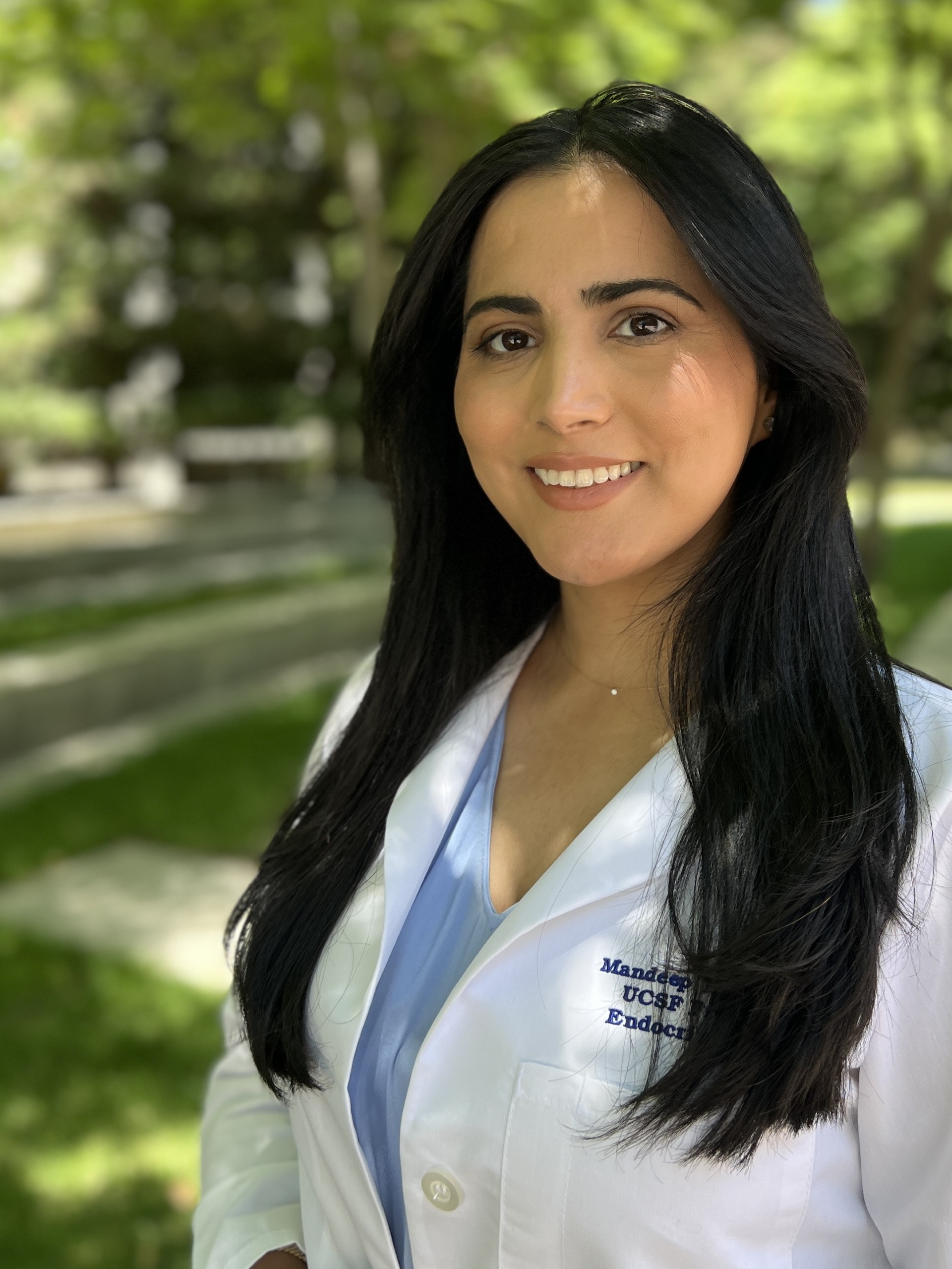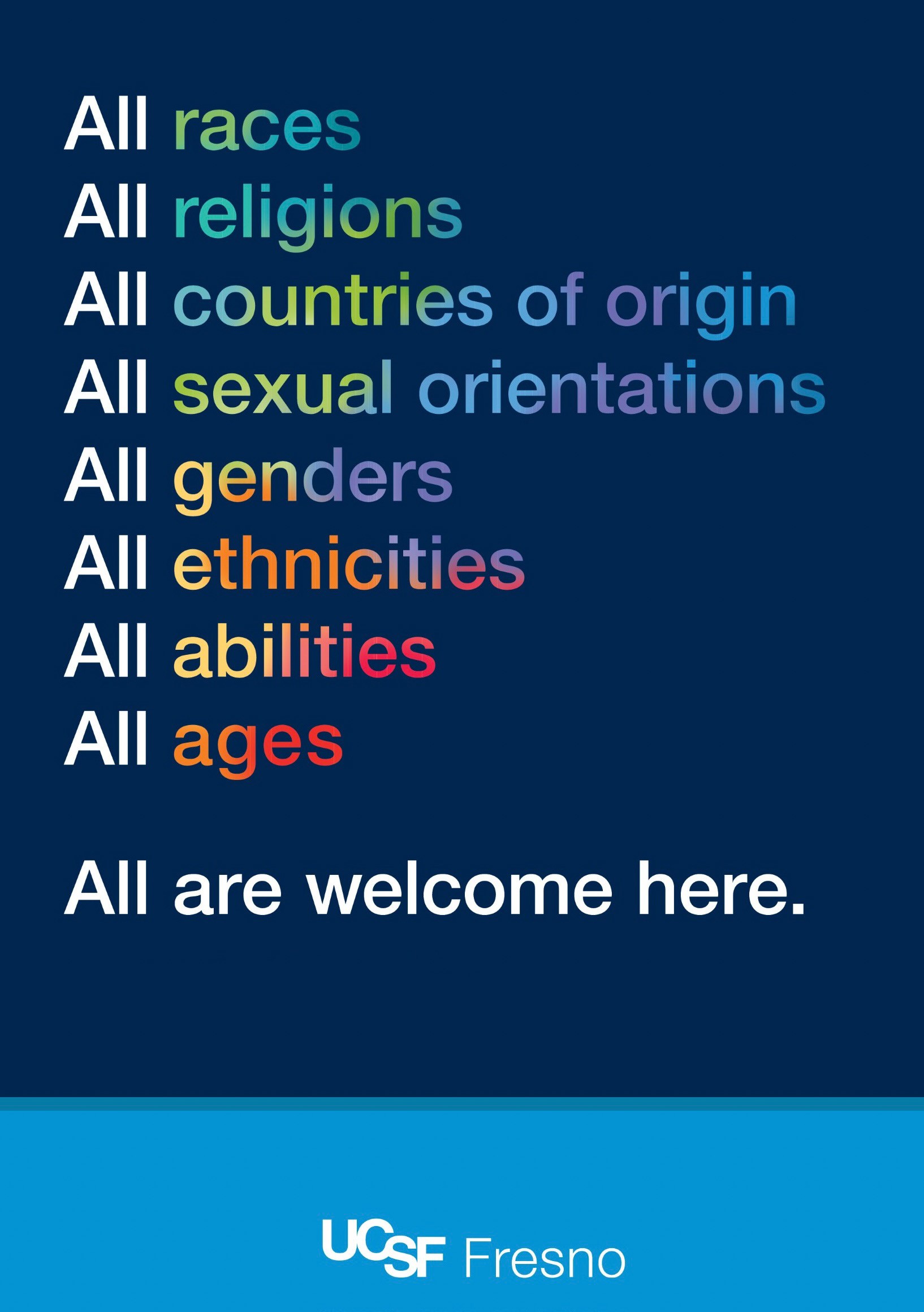It took Humzah Iqbal, MD, only a few weeks in residency at the UCSF School of Medicine Regional Campus at Fresno (UCSF Fresno), to find a specialty to pursue – and the fellowship program for advanced training.
“My very first rotation of residency was GI (gastroenterology) at the VA,” Dr. Iqbal said. “I was sold after that. I really loved it. I loved working with the fellows and with the attendings. I felt like I could do this for the rest of my life and never get bored.”
It takes 10-11 years to produce a practicing physician after high school, and fellows like Dr. Iqbal continue their education, essentially going back to school for an additional one to two years or even five years or longer, to fine-tune their clinical knowledge and skills.
Dr. Iqbal completed his three-year residency program in Internal Medicine this summer and has continued at UCSF Fresno as a fellow in Gastroenterology. “I knew I would get amazing training here,” he said.

When researching UCSF Fresno for residency training, several aspects attracted him. “They have an affiliation with UCSF, one of the top universities in the world. They have all the fellowships I would consider in-house. They have research they put out every year; they have well-known attendings. And it seems like everybody is very positive about the program.”
UCSF Fresno’s Gastroenterology Fellowship thus far has more than exceeded his expectations, he said. “It’s been hectic, and a very steep learning curve, but I’m enjoying every second of it.”
UCSF Fresno trains approximately 260 residents in eight medical specialties and one dental surgery residency, and has about 50 fellows in approximately 20 sub-specialty fellowship programs. These programs contribute to UCSF Fresno's medical education portfolio, making it the largest physician training program between Sacramento and San Francisco to the north and Los Angeles to the south.
It’s widely accepted that where physicians train after medical school is one of the best predictors of where they will ultimately practice, and fellowships at UCSF Fresno increase the likelihood of physicians staying in the region and in California. Specialists are particularly needed in the Valley, which has the lowest number of specialists in the state (83 per 100,000 population), according to the 2025 edition of the California Physicians Almanac, produced by the Healthforce Center, Philip R. Lee Institute for Health Policy Studies at UCSF. California recommends 85-105 specialists per 100,000 population.
“We are excited to welcome our newest cohort of fellows this academic year,” said Stacy Sawtelle Vohra, MD, assistant dean for Graduate Medical Education. "Fellowship training programs at UCSF Fresno ensure access to highly skilled sub-specialty medical care in the San Joaquin Valley, both through retention of the graduates of our programs and the faculty physicians whom we are able to recruit to the area as clinician educators. Fellows enhance the learning environment for residents and improve patient care."

Mandeep K. Gill, DO, UCSF assistant clinical professor at UCSF Fresno, is a graduate of UCSF Fresno’s Internal Medicine residency and its Endocrinology fellowship program. For professional and personal reasons, she wanted to remain in the community.
She considers herself fortunate that UCSF Fresno initiated a two-year ACGME-accredited Endocrinology, Diabetes, and Metabolism Fellowship in 2023, of which she was the first graduate in 2025. “I have always been drawn to endocrinology starting in medical school, and continuing throughout residency. I developed a strong interest in diabetes. I knew that if I wanted to specialize, it would be endocrinology.”
Originally from Bellingham, Washington, Dr. Gill also had personal reasons to apply for the fellowship and to join the faculty. “I really did not want to move out of the area. My husband, (Amitpaul Gill, MD, a gastroenterologist), is from Fresno and did his training at UCSF Fresno. So, we wanted to start a family; we wanted to proceed with a personal life.”
The opportunity to have training uninterrupted by a relocation also appealed to Dr. Iqbal. “The transition between residency and fellowship can be kind of daunting if you also have to move to a different state or city, particularly if you have a family.” His wife, Nida Aftab, is a student at Fresno State.
Both residency and fellowship programs at UCSF Fresno provide comprehensive training with a multifaceted patient population and a volume of patients that is unparalleled, Drs. Gill and Iqbal said.
“Logistically, it made the most sense to stay here, but also compared to all the other programs I interviewed at, the procedure volume, the pathology that we see here is second to none. So, overall, it was just the best of both worlds,” Dr. Iqbal said.
Dr. Gill appreciates the different settings where she sees patients. She primarily sees private-pay patients at the Inspire Health Endocrinology clinic. Also, she has patients at United Health Centers of the San Joaquin Valley, a federally qualified health center that accepts government insurance plans, including Medi-Cal. She also sees patients who are hospitalized in the ICU at Community Regional Medical Center (CRMC), the flagship hospital of Community Health System and the primary clinical partner for UCSF Fresno. Dr. Iqbal sees patients at CRMC but also has rotations at Kaiser Permanente Fresno Medical Center and at the VA Fresno Medical Center.
The doctors emphasized that fellowship programs improve both accessibility to care and the quality of care.
“In the absence of a fellowship, you don’t have a structured academic training program that adds high-quality care to the community, because we’re working on research to improve patient care. We’re attending conferences, learning the newest, latest advances in care,” Dr. Iqbal said.
Among specific health needs in the Valley are those for physicians to provide diabetes care. One study estimates that almost half of Fresno County adults have pre-diabetes. Dr. Gill said UCSF Fresno’s Endocrinology Fellowship helps to address this problem. “We can have more endocrinologists stay in the area, which allows us to better serve a large population of patients in need of care."
Overall, UCSF Fresno fellowships prepare physicians for outstanding careers as clinicians in private practice and as teachers of the next generation of physicians. Or as Dr. Gill said, “This is such a unique place because you see things that you may never encounter elsewhere. “If you can train here and succeed, you can practice anywhere.”




